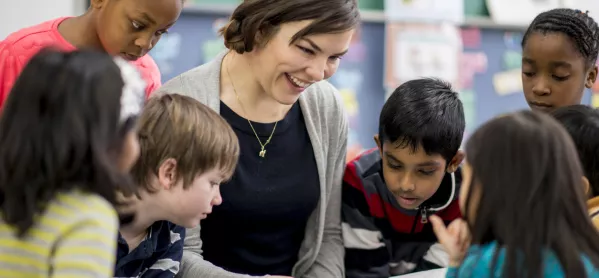Only one in four pupils had an author visit at their school this year, with those from socially disadvantaged backgrounds most likely to miss out, a new report by the National Literacy Trust shows.
The report, “The impact of writer visits on children and young people’s reading and writing engagement”, published to coincide with National Writing Day, says that just 27 per cent of pupils had had an author visit this year.
Insight: Four steps to ensure pupils read for pleasure
Quick-read: How (not) to get pupils reading
Social mobility: Working-class teens must see themselves in books
Only 24 per cent of pupils eligible for free school meals reported that an author had visited their school, compared with 28 per cent of their more advantaged peers.
The report, based on a survey of 56,905 children and young people aged 9 to 18 across the UK, claims that author visits can boost pupils’ literacy and enjoyment of reading, with 68 per cent of pupils who had received an author visit reporting that they enjoyed reading compared with just 47 per cent of children reporting they enjoyed reading when an author had not visited their school.
Equally, 44 per cent of children who had an author visit reported they enjoyed writing, compared with 33 per cent of children who did not receive a visit.
Pupils who had received an author visit were also more likely to report confidence in their reading abilities, with 37 per cent of pupils who had a writer visit saying they had high reading confidence compared with 25 per cent of pupils who did not have a visit.
Reading for pleasure
Furthermore, 22 per cent of pupils who had a writer visit described their confidence in writing as “high”, compared with 17 per cent of pupils who had not received a visit.
The report acknowledges that pupils from more privileged backgrounds were more likely to have an author visit their school, with 55 per cent of independent school pupils reporting a writer visit compared with an average of 26 per cent of pupils reporting this in other kinds of school.
Children and young people from socially disadvantaged backgrounds are more likely to have weaker literacy than more affluent peers at all stages of their education.
According to data from the Department of Education, one in four 11-year-olds in England was unable to read well by the time they left primary school in 2018, rising to two in five - 40 per cent - of disadvantaged children.
Similarly, one in three 16-year-olds in England failed to achieve good GCSE grades in English language in 2017, rising to six in 10 - 60 per cent - of disadvantaged students.
In response to the report’s findings, the National Literacy Trust has launched two new projects with the Authors’ Licensing and Collecting Society (ALCS) to give less disadvantaged pupils more opportunities to meet authors.
One project, Young City Poets, will take pupils from 16 primary and secondary schools in Bradford on a cultural visit to the Brontë Parsonage Museum, former home of the Brontë sisters, to inspire them to write their own poetry.
Children’s author Dave Cousins will also deliver “Ruth Rendell” crime-writing workshops in schools across all National Literacy Trust Hub areas.
Jonathan Douglas, director of the National Literacy Trust, said: “We cannot understate how important author visits are for sparking a love of reading and writing in children and young people that will ignite their imaginations, enhance their wellbeing and transform their life chances.
“We are thrilled to be working with ALCS to inspire pupils’ writing through a series of school visits from authors and poets, and to also launch the Ruth Rendell Award 2019 to celebrate the authors and writers who have taken great strides to champion literacy in the past year.”




